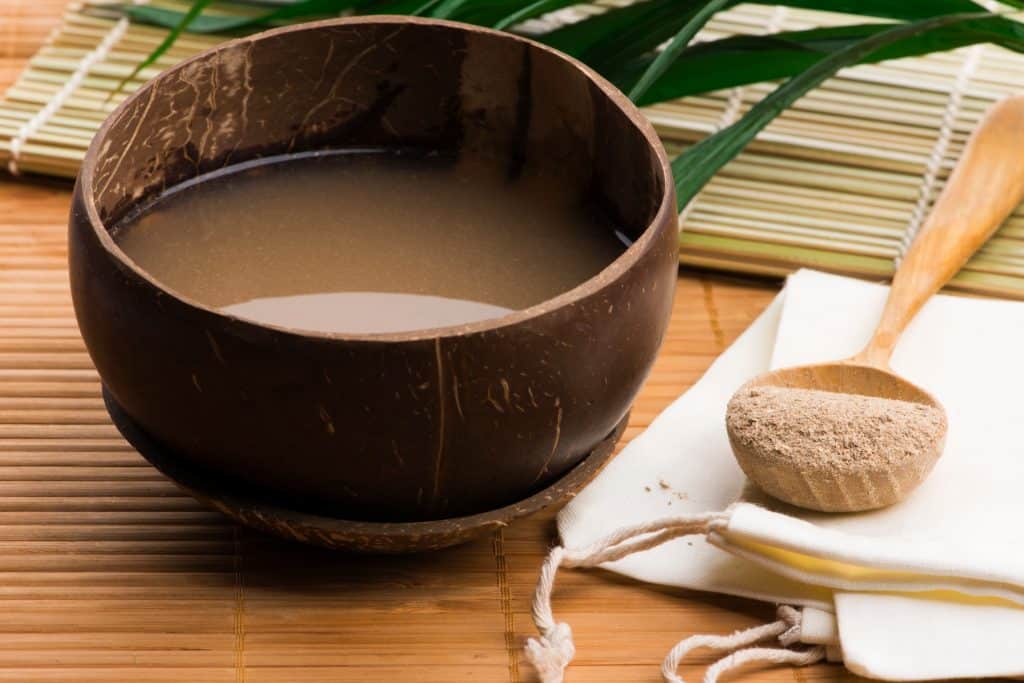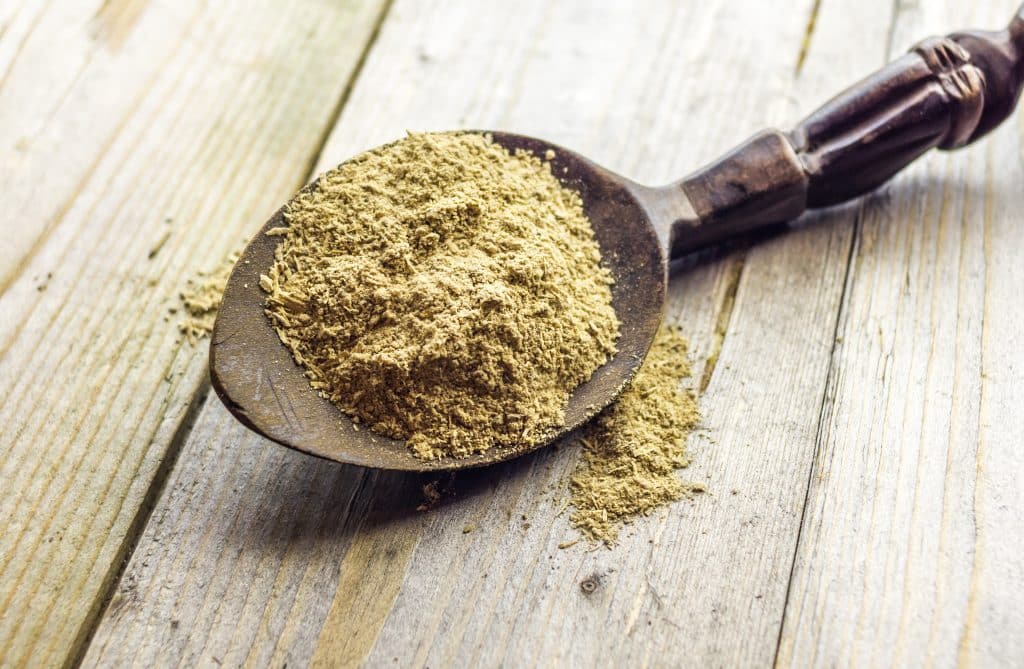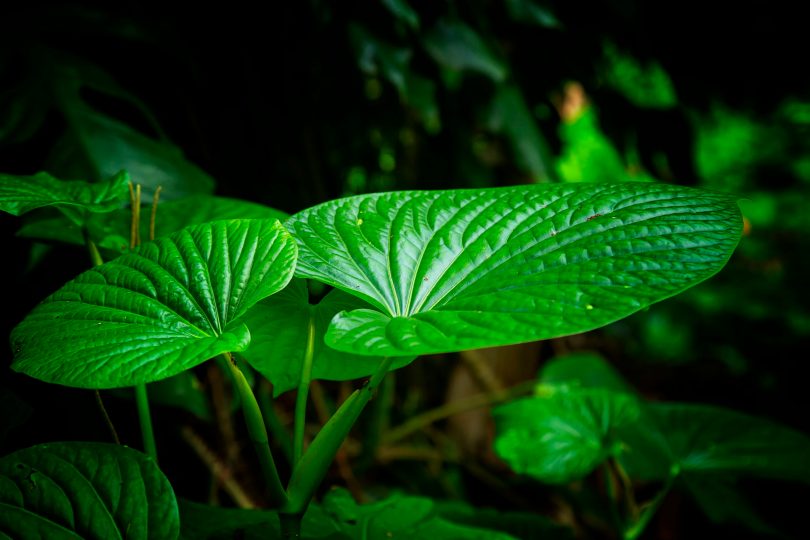One aspect of humanity that I feel deserves more praise, is our seemingly innate ability to find different ways to alter our states of consciousness. No matter where you are in the world or what time period you’re looking at, you’ll find that people have always been drawn to intoxicating substances. There is documented use of cannabis, psilocybin, opium, tobacco, coca, and so many other plants that dates back over 10,000 years.
Despite centuries of recorded drug use, most of these substances and compounds are prohibited today. With the exception of alcohol, and cannabis in some regions, the options for a legal but fulfilling high are quite limited. However, there is one lesser-known substance that checks all the boxes – it’s psychoactive, completely legal, safe, and growing in popularity. The product in question: Kava.
We cover everything important in the emerging industry of psychedelics, which you can read about in The Psychedelics Weekly Newsletter. Keep up with everything going on, and be the first to get access to new deals for psychedelic products as they come in.
What is Kava?
Kava, or Kava Kava (Piper methysticum), is a type of pepper plant originating from the South Pacific. It’s medicinal, non-addictive, and has a very good safety profile. It grows in tropical climates and can reach a height of 6 feet with large heart-shaped leaves. The root of the plant is used to make the intoxicating drink it’s infamous for.
Also known as asava pepper or ‘intoxicating pepper’, Kava has been used for centuries to treat various ailments including pain, mental disorders, rheumatism, infections, insomnia, and migraines. It’s also used ceremoniously in some regions like Fiji, Vanuatu, Tonga, Samoa, and Hawaii.
Traditionally, it’s consumed as a beverage, as has been the case for centuries; but now you can find it in a few different forms such as powders and supplements. In the early 2000s, kava was briefly banned in the EU, following a now disproven study claiming that kava could cause liver damage. The ban did effect kava use statewide as well, although it was never officially prohibited here. The EU ultimately repealed the ban as well, and the only country where it remains illegal is Poland.
The Kava High
When you try kava for the first time, you’ll immediately notice its unique flavor, which is a combination of bitter, spicy, and earthy – described as tasting like “muddy water”. It’s definitely an acquired taste, but similar to liquor, people usually don’t sip on kava. It’s often taken in shots until the desired level of intoxication is reached.

Kava can be used medicinally or recreationally, depending on the dose and strain (there are over 100 known varieties). It can help with anxiety, make users feel relaxed, happy, carefree, giddy, and euphoric, and some people even report mild hallucinations at higher doses of certain strains, although this is up for debate. Some people say it makes them feel “drunk” but without the confusion and sickness associated with alcohol.
The active ingredients in Kava that are responsible for these effects are called Kavalactones. These sticky, insoluble molecules pass through the bloodstream, making it act as a muscle relaxant; and they also bind with receptors in the limbic system, which is the area of our brains most associated with regulating emotion and behavior. Kavain is the most notable kavalactone, and it’s the one that is usually most heavily concentrated in the root of the plant.
Legality and medical benefits
In the US, Kava is legal and regulated as a dietary supplement. It’s actually one of the few intoxicating substances that’s legal in nearly every country in the world (except Poland, as stated above). Because of the aforementioned and contested study from 2002 claiming that Kava might cause liver damage (it does not), some local municipalities have enacted laws to restrict its possession and distribution.
To clarify a bit more on the liver damage angle. The EU reported that they had records of 30 deaths (ever) that may have been caused by Kava, but could not prove a direct link to it. Conversely, liver cirrhosis, which is a form late-stage scarring of the liver resulting from excessive damage is responsible for roughly 170,000 deaths in Europe annually. In total, 49.5% of cirrhosis deaths are alcohol-related. But sure, go ahead and ban Kava instead of alcohol (eyeroll).
On a more positive note, a handful of studies indicate that kavalactones in kava can be used to treat a myriad of different health conditions. It’s most commonly utilized as a natural remedy for anxiety, and a decent amount of research exists to back up this use. Specifically, a 2013 clinical study published in the Journal of Clinical Psychopharmacology found that kava had “significantly reduced symptoms in people diagnosed with general anxiety disorder”.
Additionally, kava is natural and safe, especially in comparison to other recreational and prescription drugs, many of which are synthetic with high levels of toxicity. A kava overdose is relatively unheard of, and long-term effects (either good or bad) have not been adequately documented, although some regular users report gastrointestinal issues. On the flip side, anecdotal evidence suggests that Kava is effective for treating issues with addiction, anxiety, depression, chronic pain, and more.
“Drinking kava in moderation doesn’t produce any discernible side effects,” says leading kava expert Dr. Vincent Lebot, who’s based in Vanuatu, a Pacific Island nation in the South Pacific Ocean. “The beverage can be very diluted and hardly any effect will be produced, or it can be very strong, and it is recommended to stay home and not drive.”
What kind of Kava products are out there?
When it comes to Kava products, there are quite a few to choose from. These days, kava root powder is the most popular, because it’s made from dried and powdered kava root without any additional processing. It’s as close to natural as you can get, and the powder form makes it very versatile as far as product production goes. In that same vein, a similar product is instant kava powder, which is designed to be added to warm water and made into a beverage, although this may have additional ingredients added.
Another common and convenient way to take your kava is in capsules. They offer simplicity, consistency, and discretion, because they can be kept in a purse or pocket and taken at any time. Kava tinctures are somewhat similar, in the sense that they are discreet and easy to use and dose. They consist of kavalactone extract mixed with water and a small amount of alcohol or glycerin, often taken sublingually.
And last but not least, are prepared kava drinks. Taste-wise, this is about as close to traditional as you’re going to find. The reason this option is less popular than powder comes down to price. Kava powders are much more affordable and can often be purchased in bulk. Now, don’t get this confused with “kava tea”. I have found that most companies claiming they add kava to their tea are doing it simply as a marketing tool.

The fact of the matter is, the active ingredients in kava are fat-soluble, not water-soluble – meaning steeping a kava-infused tea bag won’t pull out as many active compounds as prepared drinks that use milk or some other type of fat. Prepared kava drinks are made with kavalactone extracts, flavorings, stabilizing agents, and in some cases, other herbs and supplements.
Conclusion
If you’ve made it this far and you’re curious about trying Kava for yourself, then by all means, give it a shot! You can check out this list of vendors, that I personally have found to be very helpful. Since Kava is federally legal, it’s much easier to get ahold of than other substances. You can order it online and have it delivered to anywhere in the United States. Add to that, there are a growing number of Kava bars popping up in some of the larger US cities, so if you’re near one, it might be worth stopping by to check it out. When it comes to natural, legal highs, you won’t find much that compares to kava.
Thanks for joining us! Welcome to CBDtesters.co/Cannadelics.com, your preeminent internet location for the most important independent coverage of cannabis and psychedelics-related news going on in the world today. Stop by regularly to stay informed on the fast-moving universe of cannabis and psychedelics, and subscribe to The Psychedelics Weekly Newsletter, for your daily dose of industry news.
Disclaimer: Hi, I’m a researcher and writer. I’m not a doctor, lawyer, or businessperson. All information in my articles is sourced and referenced, and all opinions stated are mine. I am not giving anyone advice, and though I am more than happy to discuss topics, should someone have a further question or concern, they should seek guidance from a relevant professional.









